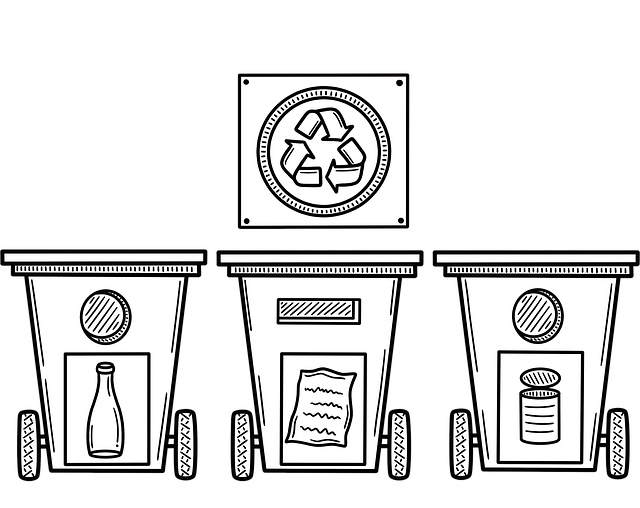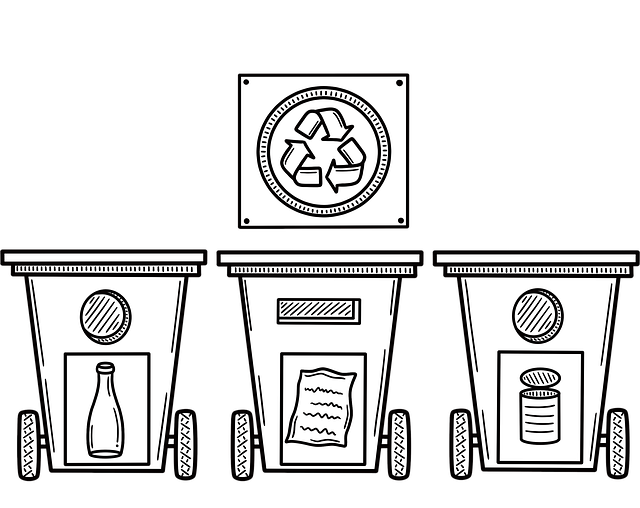Secure Data Destruction Boston: Recycling E-Waste Responsibly Near You

Boston offers efficient and secure commercial e-waste recycling services with dedicated drop-off points for electronic waste. These services promote e…….
In the heart of Massachusetts, Boston stands as a beacon of innovation and sustainability, pioneering efforts in commercial e-waste recycling. This comprehensive guide delves into the intricate world of electronic waste management within the city’s business sector, exploring its importance, processes, and impact on both local communities and the global environment. By understanding and appreciating this initiative, we can gain valuable insights into a sustainable future where technology and ecological consciousness merge harmoniously.
Definition: Commercial e-waste recycling refers to the systematic collection, processing, and reuse or recycling of electronic equipment and components generated by businesses in Boston. This includes a wide range of items, from outdated computers and servers to mobile phones, tablets, and office electronics.
Core Components: The process involves several key stages:
Collection: Businesses partner with specialized recycling companies to collect end-of-life electronic equipment. Boston has implemented various initiatives to encourage proper disposal, such as e-waste collection events and drop-off locations.
Sorting and Categorization: At recycling facilities, collected items are sorted based on material type, functionality, and potential reuse or recycling methods. This step ensures efficient processing.
Demanufacturing/Disassembly: Skilled workers or advanced machinery disassemble electronics to extract valuable components like motherboards, processors, capacitors, and precious metals.
Reusing and Recycling: Extracted materials are either reused in new products or sent for further recycling. Metals, plastics, glass, and other components undergo specialized processes to reduce environmental impact.
Historical Context: Boston’s journey towards efficient e-waste management began with the growing recognition of electronic waste as a significant environmental concern. In the early 2000s, the city took proactive measures by introducing business-focused recycling programs, leading to the establishment of dedicated e-recycling facilities and partnerships between businesses and recyclers.
Significance: Commercial e-waste recycling plays a pivotal role in:
Reducing Environmental Impact: Proper disposal prevents toxic substances from entering landfills or being incinerated, safeguarding soil, water, and air quality.
Conserving Natural Resources: Recycling valuable materials from e-waste helps conserve natural resources, reducing the need for mining and processing virgin raw materials.
Promoting Economic Development: It fosters a circular economy by creating job opportunities in recycling, repair, and remanufacturing sectors, contributing to local economic growth.
The global e-waste management landscape is dynamic, with Boston’s efforts contributing to a broader movement towards sustainable practices. Here’s an overview:
| Region | E-Waste Generation (in tons) | Recycling Rate (%) | Notable Initiatives |
|---|---|---|---|
| North America | 9.4 (2020) | 27.5 (as of 2022, estimated) | Comprehensive e-waste programs in US states and city-led initiatives like Boston’s |
| Europe | 13.8 (2020) | 36.5 (2021 data) | Strict regulations like the European Union’s WEEE Directive, driving high recycling rates |
| Asia-Pacific | 26.7 (2020) | 14.6 (2021 estimate) | China’s recent ban on foreign e-waste imports and growing domestic recycling efforts |
| Africa | 4.8 (2020) | 15.3 (2022 data, preliminary) | Increasing awareness and partnerships with international organizations for capacity building |
Boston’s commercial e-waste recycling program has gained global recognition as a model for effective business engagement in waste reduction. The city’s success can be attributed to its collaborative approach, leveraging public-private partnerships and community involvement.
The commercial e-recycling market in Boston is driven by the increasing volume of electronic equipment reaching the end of its life cycle. This presents both opportunities and challenges:
Opportunities: Growing consumer demand for new electronics creates a steady supply of obsolete devices, ensuring a consistent feedstock for recyclers.
Challenges: Rapid technological advancements lead to frequent upgrades, making it challenging for businesses to keep up with recycling needs while managing costs.
Boston’s e-waste recycling industry attracts investments from various sources:
Private Sector: Recycling companies invest in advanced machinery, facility expansion, and research to enhance efficiency and profitability.
Government Incentives: Local and state governments offer incentives like tax credits and grants to encourage businesses to participate in recycling programs.
International Funding: Global initiatives fund projects aimed at improving e-waste management practices in developing regions, fostering collaboration with Boston-based organizations.
The economic implications of efficient commercial e-waste recycling are multifaceted:
Job Creation: Recycling facilities, collection services, and related industries contribute to local employment, fostering a sustainable job market.
Cost Savings for Businesses: Proper disposal methods reduce potential legal liabilities and environmental fines associated with improper e-waste management.
Revenue Generation: Recyclable materials have inherent value, and businesses can earn revenue by contributing to recycling efforts, offsetting the cost of responsible disposal.
Technological innovations have been pivotal in transforming commercial e-waste recycling:
Advanced Sorting Technologies: Machine learning algorithms and computer vision systems enable faster and more accurate sorting of electronic components, improving efficiency and recovery rates.
Automated Demanufacturing: Robotic systems and automated disassembly lines increase the speed and precision of component extraction, reducing labor costs and potential contamination.
Refining Recycling Processes: Continuous improvements in recycling techniques, such as advanced metal refining and plastic purification, enhance material recovery rates and product quality.
Digital Tracking Systems: Blockchain technology is being explored for transparent tracking of e-waste throughout the supply chain, ensuring accountability and facilitating efficient resource allocation.
These advancements not only improve the environmental performance of e-recycling but also make it a economically viable option for businesses.
Boston’s commitment to responsible e-waste management is reflected in its local policies:
Boston E-Waste Ordinance (2014): This ordinance requires all electronic equipment generated by businesses to be recycled or disposed of through authorized facilities, setting clear guidelines for compliance.
Incentive Programs: The city offers incentives like reduced disposal fees for businesses participating in approved recycling programs.
Massachusetts and the United States have broader regulatory frameworks that support Boston’s efforts:
Electronic Waste Management Act (MA, 2010): This law establishes standardized collection and recycling programs across the state, ensuring proper e-waste disposal.
National Electronic Waste Recycling Act (US, 2003): The federal legislation provides a framework for managing e-waste responsibly, encouraging industry collaboration and research.
International agreements and regional collaborations also influence Boston’s e-waste policies:
Basel Convention (1989): This international treaty controls the transboundary movement of hazardous wastes, including e-waste, ensuring responsible management practices globally.
European Union’s WEEE Directive (2003): The directive sets strict recycling targets and regulations for electronic equipment, serving as a model for other regions.
Despite its numerous benefits, commercial e-waste recycling faces several challenges:
Complex Supply Chain: Tracking and managing the flow of e-waste from businesses to recycling facilities can be complex, requiring robust digital tracking systems and standardized protocols.
Cost Concerns: Initial investment costs for businesses to comply with recycling regulations can be significant, especially for smaller entities. Financial incentives and government support are crucial to overcoming this hurdle.
Technology Obsolescence: Rapid technological advancements often render older devices unusable or valuable materials inaccessible, posing challenges for recyclers.
Criticisms of Recycling Methods: Some critics argue that current recycling practices may not fully capture all recoverable resources, suggesting a need for further innovation and improved collection systems.
Enhanced Collaboration: Encouraging collaboration between businesses, recyclers, and policymakers can lead to more efficient solutions and cost savings for all stakeholders.
Research and Development: Continued investment in R&D is essential to developing advanced recycling technologies and improving material recovery rates.
Educational Campaigns: Raising awareness among businesses about the benefits of responsible e-waste management can foster voluntary participation and long-term behavioral changes.
Standardized Protocols: Establishing standardized collection, sorting, and reporting protocols across regions can simplify the supply chain and enhance transparency.
Boston Public Schools (BPS) implemented a comprehensive e-waste recycling program in 2018, partnering with local recyclers to collect and process end-of-life electronics from schools. The initiative achieved remarkable results:
Collection Success: In the first year, BPS collected over 50 tons of e-waste, including computers, tablets, and phones, from 147 schools.
Material Recovery: Advanced sorting technologies enabled the recovery of 85% of materials, with valuable components resold or reused in new products.
Cost Savings: The program reduced disposal costs by 30% for BPS, demonstrating the financial benefits of responsible e-waste management.
A prominent tech company headquartered in Boston took a proactive approach to e-waste recycling by designing an efficient end-of-life program:
Customized Solution: The company developed a tailored recycling strategy, partnering with specialized facilities for specific component extraction and responsible disposal.
Data Tracking: They implemented a digital tracking system to monitor equipment throughout its lifecycle, ensuring proper disposal and data security.
Public Recognition: Their commitment to sustainable practices earned them industry awards and boosted their public image as an eco-conscious leader.
The future of commercial e-waste recycling in Boston holds immense potential for growth and innovation:
Expanding Collection Networks: The city can leverage emerging technologies like drone delivery and autonomous vehicles to enhance collection efficiency, particularly in hard-to-reach areas.
Material Recovery Advancements: Ongoing research into advanced sorting and refining techniques will enable higher material recovery rates, ensuring a consistent feedstock for recycling industries.
Circular Economy Focus: Boston is poised to lead the way in implementing circular economy principles, encouraging product design for longevity, repairability, and recyclability.
International Collaboration: As global e-waste generation continues to rise, partnerships with international organizations and developing regions can help address growing challenges and ensure a sustainable future.
Commercial e-waste recycling in Boston is a shining example of how responsible waste management practices can be successfully integrated into the business sector. By understanding the complexities, embracing technological advancements, and fostering collaboration, Boston continues to set a precedent for sustainable e-waste management globally. As the world navigates the digital landscape, initiatives like these are vital for mitigating environmental impact while driving economic growth and innovation.
Q: What is considered commercial e-waste?
A: Commercial e-waste refers to electronic equipment and components generated by businesses, including offices, manufacturing facilities, and retail stores. This includes computers, servers, mobile devices, and various peripherals.
Q: Why is proper e-waste disposal important?
A: Improper disposal can lead to environmental pollution, as toxic substances from electronics can leach into soil and water sources. Responsible recycling helps prevent this damage and conserves natural resources.
Q: How does Boston’s program benefit businesses?
A: The city’s initiative offers financial incentives, reduces legal liabilities associated with improper disposal, and enhances a company’s public image by showcasing its commitment to sustainability.
Q: What are some common materials recovered from e-waste?
A: Common materials include metals like gold, silver, copper, aluminum, and rare earth elements; plastics for new product manufacturing; glass for various applications; and valuable components for reuse in refurbished equipment.
Q: Can I drop off my old electronics at a Boston city hall?
A: While some Boston city halls may have collection points during specific events, the primary recycling facilities are operated by specialized companies. It’s best to contact these providers directly for proper disposal options.

Boston offers efficient and secure commercial e-waste recycling services with dedicated drop-off points for electronic waste. These services promote e…….

Boston's commercial e-waste recycling programs address growing electronic waste concerns. Secure data deletion and sustainable practices, like re…….

Boston leads in commercial e-waste recycling, addressing sustainability needs of businesses through tailored programs. The city promotes data protecti…….

Boston's robust commercial e-waste recycling programs address significant annual electronic waste generation, facilitating responsible disposal a…….

Boston's thriving tech industry generates significant commercial e-waste, prompting specialized recycling centers to address environmental concer…….

Boston leads in environmental stewardship through robust commercial e-waste recycling programs, developing efficient systems, encouraging local busine…….

Boston's commercial e-waste recycling specialists offer crucial services for businesses to manage electronic byproducts responsibly. By organizin…….

Boston grapples with an escalating e-waste crisis due to rapid tech advancements. Residents have taken action through collection events and an emergin…….

Boston leads in commercial e-waste recycling, addressing environmental challenges with robust IT asset programs and old electronics collection. Local…….

Boston prioritizes commercial e-waste recycling, enhancing data security and environmental sustainability through convenient drop-off locations. Effec…….